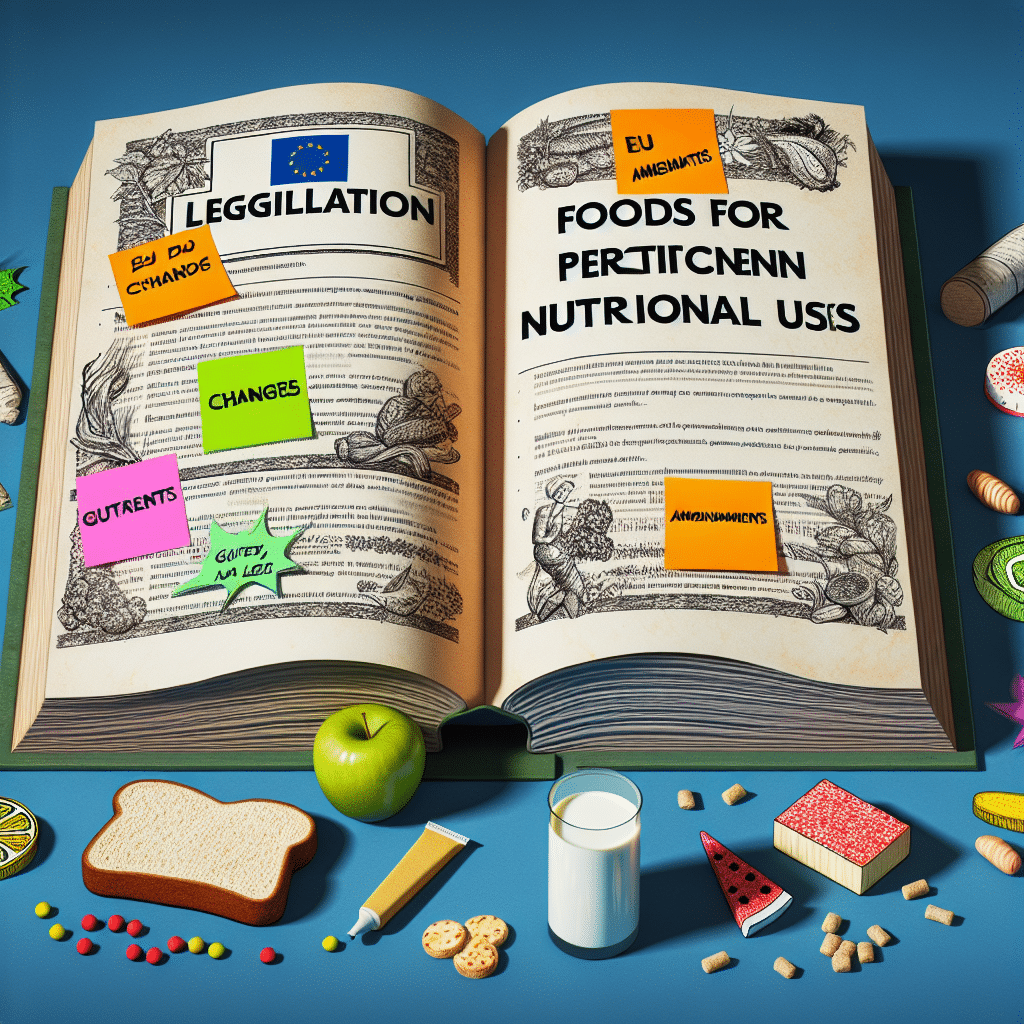Changing EU Legislation On Foods For Particular Nutritional Uses
-
Table of Contents
- EU Legislation Evolution on Foods for Special Nutritional Needs
- Understanding the PARNUTs Framework
- The Shift Towards a New Regulatory Approach
- Key Changes in the Legislation
- Impact on the Food Industry
- Case Studies and Examples
- Statistics and Market Trends
- Conclusion: The Future of PARNUTs Legislation
- ETChem’s Protein Products: Meeting Specialized Nutritional Needs
EU Legislation Evolution on Foods for Special Nutritional Needs

The European Union (EU) has been at the forefront of regulating foods designed for specific dietary requirements, known as Foods for Particular Nutritional Uses (PARNUTs). These products cater to individuals with special dietary needs due to medical conditions, age, or lifestyle choices. The EU’s legislation on PARNUTs has undergone significant changes to ensure consumer safety, product efficacy, and market fairness. This article delves into the shifting landscape of EU legislation on PARNUTs, examining the implications for consumers, manufacturers, and the broader food industry.
Understanding the PARNUTs Framework
Foods for Particular Nutritional Uses are a unique category within the food industry. They are intended for vulnerable groups of the population and are subject to rigorous regulatory scrutiny. The EU’s framework for PARNUTs has traditionally been governed by Directive 2009/39/EC, which aimed to safeguard consumers by setting out specific compositional and labeling requirements for these foods.
The Shift Towards a New Regulatory Approach
In recent years, the EU has moved towards a more streamlined and flexible regulatory approach. The adoption of Regulation (EU) No 609/2013 marked a significant shift, repealing the previous PARNUTs Directive and introducing new rules for certain categories of foods, including:
- Infant formula and follow-on formula
- Processed cereal-based foods and baby foods
- Food for special medical purposes
- Total diet replacement for weight control
This regulation aimed to simplify the legislative framework, improve clarity, and enhance consumer protection. It also sought to foster innovation within the industry while ensuring that only safe and appropriately labeled products reach the market.
Key Changes in the Legislation
The transition from the PARNUTs Directive to the new regulation brought several key changes:
- Stricter Product Definitions: The new regulation provides clearer definitions of the different categories of foods, which helps to prevent misuse and misinterpretation.
- Enhanced Quality and Safety: There is a greater emphasis on the quality and safety of ingredients used in these foods, with specific provisions for certain substances.
- Streamlined Procedures: The new rules simplify the procedures for bringing products to market, including notification procedures for foods for special medical purposes.
- Updated Nutritional Requirements: The regulation updates the nutritional requirements for infant formula and follow-on formula, aligning them with the latest scientific evidence.
- Improved Consumer Information: Labeling requirements have been strengthened to provide consumers with clearer and more relevant information.
Impact on the Food Industry
The changing EU legislation has had a profound impact on the food industry. Manufacturers of PARNUTs have had to adapt their product formulations, labeling, and marketing strategies to comply with the new rules. This has led to increased research and development efforts to ensure that products meet the nutritional needs of target populations while adhering to regulatory standards.
Case Studies and Examples
Several case studies illustrate the practical effects of the changing legislation:
- A leading manufacturer of infant formula had to reformulate its products to comply with the updated nutritional requirements, ensuring continued access to the EU market.
- A company specializing in foods for special medical purposes streamlined its notification process, reducing time-to-market for its innovative products.
- Brands offering total diet replacements for weight control had to revise their labeling to provide clearer nutritional information and usage instructions.
Statistics and Market Trends
Market research indicates that the PARNUTs sector is growing, with an increasing demand for specialized nutrition products. According to industry reports:
- The global market for infant nutrition is projected to reach significant growth by 2025, driven by heightened awareness of nutritional needs.
- The market for foods for special medical purposes is also expanding, with a compound annual growth rate (CAGR) reflecting the rising prevalence of chronic diseases and medical conditions.
- Weight management products continue to see steady growth, with consumers seeking effective and scientifically-backed solutions.
Conclusion: The Future of PARNUTs Legislation
The EU’s evolving legislation on Foods for Particular Nutritional Uses reflects a commitment to public health, consumer protection, and industry innovation. As scientific understanding of nutrition advances, we can expect further regulatory updates to ensure that PARNUTs continue to serve the needs of those who rely on them. The key takeaways from this legislative evolution are the importance of adaptability for manufacturers, the prioritization of consumer safety, and the potential for growth in specialized nutrition markets.
ETChem’s Protein Products: Meeting Specialized Nutritional Needs
In light of the changing EU legislation on PARNUTs, companies like ETChem play a crucial role in providing high-quality protein products that meet the stringent requirements of the EU market. ETChem’s range of collagen products, including marine, fish, bovine, and chicken collagen, are ideal for manufacturers looking to develop or reformulate foods for particular nutritional uses. Their commitment to quality, safety, and compliance with EU regulations makes them a reliable partner for businesses navigating the complexities of PARNUTs legislation.
About ETChem:
ETChem, a reputable Chinese Collagen factory manufacturer and supplier, is renowned for producing, stocking, exporting, and delivering the highest quality collagens. They include marine collagen, fish collagen, bovine collagen, chicken collagen, type I collagen, type II collagen and type III collagen etc. Their offerings, characterized by a neutral taste, instant solubility attributes, cater to a diverse range of industries. They serve nutraceutical, pharmaceutical, cosmeceutical, veterinary, as well as food and beverage finished product distributors, traders, and manufacturers across Europe, USA, Canada, Australia, Thailand, Japan, Korea, Brazil, and Chile, among others.
ETChem specialization includes exporting and delivering tailor-made collagen powder and finished collagen nutritional supplements. Their extensive product range covers sectors like Food and Beverage, Sports Nutrition, Weight Management, Dietary Supplements, Health and Wellness Products, ensuring comprehensive solutions to meet all your protein needs.
As a trusted company by leading global food and beverage brands and Fortune 500 companies, ETChem reinforces China’s reputation in the global arena. For more information or to sample their products, please contact them and email karen(at)et-chem.com today.




